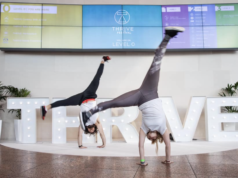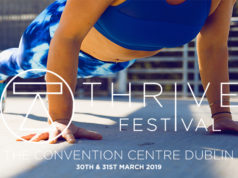

John Malone MSc., CPT, CSCS, PhD Researcher My name is John Malone and I am researcher at the School of Public Health, Physiotherapy and Population Science at University College Dublin. I am currently looking for participant’s (Triathletes / Cyclist’s) to take part in my research project.
The title of my research is ‘The physiological effects of low-intensity neuromuscular electrical stimulation (NMES) on short-term recovery from high-intensity exercise bouts’. We are doing this research to assess if NMES can enhance recovery from high intensity exercise, which is applicable to a sporting population.
Neuromuscular electrical stimulation (NMES) involves using a muscle stimulator to deliver electrical signals to the leg muscles via electrodes placed on the skin using adhesive gel. These electrical pulses will cause the leg muscles to tighten and relax rhythmically.
The results we obtain from the tests will be analysed and a report on this data will be written up and may be forwarded for publication in a scientific journal.
Participants will be required to attend the laboratory at UCD four times (see below) in total during a 3-week period (there will be a minimum time period of 72 hrs between sessions):
– Session 1: (~ 1.5 hrs)
o Body composition analysis (height, weight, body fat)
o VO2max exercise testing on cycle ergometer for determination of maximal aerobic capacity.
– Sessions 2-4: (~1 – 1.5 hrs)
– Three 30 sec Wingate tests on cycle ergometer (This consists of ‘all out’ cycling against a fixed resistance for 30sec) followed by one of three randomly assigned interventions:
• Passive Recovery (20 mins) – seated
• Active Recovery (20 mins) – cycling @ 30% VO2max
• Low level NMES (20 mins) – 1Hz/500 ?s ON:OFF ratio 2:6 s
After 30 min, repeat three Wingate tests (as above)
Benefits to the participants include Information about their:
– Maximal aerobic capacity (VO2max): the maximum capacity of the body to transport and utilize oxygen.
– Maximum anaerobic capacity: by assessing the following parameters during each of the 30 sec Wingate tests:
o Peak Power Output (PPO) which is the maximum force that can be generated
o Mean Power Output (MPO) which is the average power generated
o Fatigue Index (FI) which is how quickly fatigue occurs (anaerobic endurance).
– Ability to recover from high intensity exercise in the short term (< 1 hr). Full ethical clearance has been granted for this project by the UCD Research Ethics Board. Participants must be healthy Males aged 18 – 40 y/o. Participation is voluntary with participants free to withdraw at any stage and for any reason they see fit. Any participant who chooses to participate in this research will be fully informed about all aspects of the study protocol as well as being supplied with a comprehensively detailed participant information document and a informed consent form which they will receive a minimum of seven days prior to their first visit to the laboratory. If you have any queries, do not hesitate to contact me Kind Regards John. John Malone MSc., CPT, CSCS, PhD Researcher, Stim XDP Research Group, Institute of Sport and Health, Newstead Building, University College Dublin, Belfield, Dublin 4 Email: [email protected] Mob: 087-6418602






